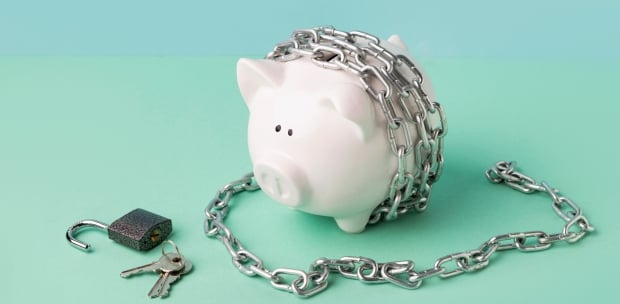ALMOST all of us have heard advice or entire lessons on the importance of saving money. Yet most adults today around the world find it tough to save. Why is that? The short answer is we probably aren't wired that way.
So, as you read on, categorise yourself into one of two distinct groups: One, the minority that naturally knows how to save and does so; or, two, the majority that either chooses not to save or who simply can't do so.
However, the way you internally perceive yourself, as a saver or a non-saver, while important to you, means nothing — kosong, zip, zilch, nada — when viewed through the emotionless predictive lens of future success.
Why? Because non-savers fail in life while savers succeed.
If that strikes you as simplistic, then consider the opinion of legendary American businessman, author, and philanthropist William Clement Stone, who died in 2002, four months after his 100th birthday.
"If you cannot save money, the seeds of greatness are not in you."
I have the greatest level of respect for those who are not hardwired to be savers but who, nonetheless, through sheer willpower generated by a deep-seated sense of duty to their families, sacrifice their personal appetites to do the right thing: Save money.
MONEY PERSONALITIES
There is no doubt that it is the successful investors who make the bulk of profits churned out by Earth's aggregated and integrated capital market each year. But we can't invest unless we first have a "grubstake" (definition: Money, help, or other capital extended at the start of a venture).
And for most of us, we can't raise that grubstake without saving it in the first place.
In their book The Five Money Personalities, married co-authors Taylor and Megan Kovar — known as the "Money Couple" — identified the main "money personalities", namely:
1. Security Seeker;
2. Saver;
3. Spender;
4. Risk Taker; and
5. Flyer.
In the coming weeks, I will share with you my views on each of that quintet of unique money-personalities. But for today, let's unearth what the Kovars have to say about those who exhibit more saver characteristics than any of the other four:
"While Savers don't always save in the same ways, there are some traits that are common to most of them."
They go on to list four common traits of those who are internally hardwired to be predominantly stable savers, as opposed to being seekers of security, enthusiastic spenders, embracers of risk, or fun-loving flyers who seldom fixate on money.
In their insightful book, they state that you are a saver IF you:
1. Get a genuine rush from saving money;
2. Are organised, responsible and trustworthy when it comes to finances;
3. Rarely spend impulsively; and
4. Avoid credit card debt like head lice.
Most people, including me, are not natural savers. But as I stated near the start of this 'Money Thoughts' column, non-savers fail in life while savers succeed.
STRONG FINANCIAL MUSCLES
So, even if saving is not our default mode — and it isn't for most of us — we must still figure out how to internalise this action as an entrenched habit. How?
By proactively not giving in to our baser instincts to spend all the money we have or even more than we possess. It's the only way to create a consistent cash flow margin or surplus in our lives.
And it is the wise utilisation of that margin over weeks, months, years and decades by not spending all we earn but by (first) saving and (later) investing the difference (our cherished cash flow surplus) that causes us to build big financial muscles.
Where should we save our money, as opposed to the also crucial activity of investing some of it?
I recommend four buckets for every Malaysian resident or citizen:
1. Bank savings accounts;
2. Bank fixed deposits;
3. Money market funds; and
4. Additional non-obligatory EPF contributions (currently capped at RM100,000 a year).
Always save first before venturing further afield — by taking on some prudent level of investment risk — with, say, bonds, preferred securities, domestic and international equities, brick-and-mortar investment real estate, real estate investment trusts, and alternative investments such as foreign currencies and commodities.
The world of investing is vast and volatile. So, always, always, always save first. The best way to do so is to not choose to try to save what is left over after all expenses for the month, but rather to save (and invest) first, and to then live on what is left.
I urge you to do so even if it goes against the grain of your natural inclinations because it is the only way to not be perpetually under financial duress. The duration we have to earn money healthily and actively is, hopefully, long. But it isn't eternal.
So, do heed these wise words penned by my favourite American Founding Father, Benjamin Franklin. Way back in 1757, he wrote in The Way to Wealth:
"For Age and Want, save while you may;
No Morning Sun lasts a whole Day."
In other words, our clock is ticking.
© 2024 Rajen Devadason
Rajen Devadason, CFP, is a securities commission-licensed Financial Planner, professional speaker and author. Read his free articles at www.FreeCoolArticles.com; he may be connected with on LinkedIn at www.linkedin.com/in/rajendevadason, or via [email protected]. You may also follow him on Twitter @Rajen Devadason and on YouTube (Rajen Devadason).





